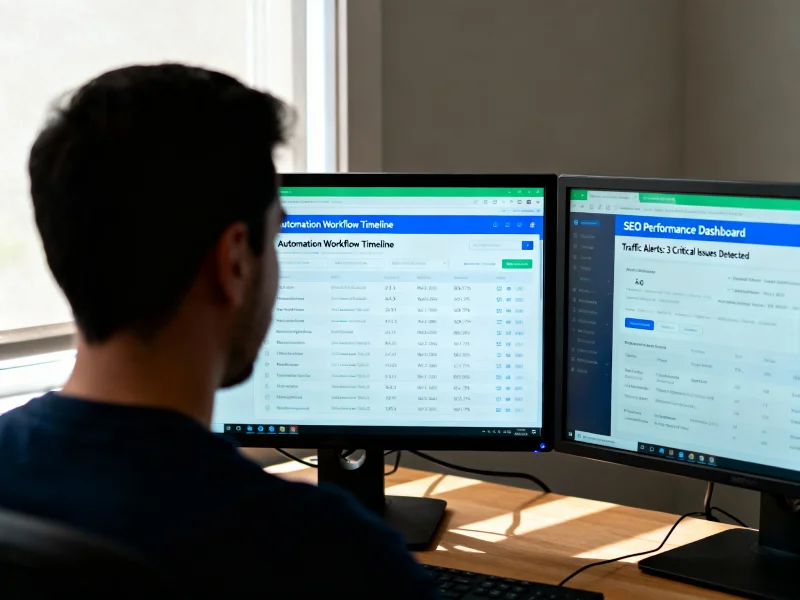Podcast Seo: Optimizing Your Show For Maximum Reach
Podcasting has skyrocketed in popularity over the past few years, with millions of people tuning into their favorite shows every day. With this rise in demand for audio content comes an opportunity to optimize your podcast for maximum reach through search engine optimization (SEO). By implementing effective SEO strategies, you can increase visibility and attract more listeners to your show.
In order to successfully optimize your podcast for SEO, it is important to understand the key factors that influence its ranking on popular platforms such as Google or Apple Podcasts. These include elements like keywords, descriptions, titles, episode length, and even cover art. In this article, we will explore the various techniques and tactics used by successful podcasters to improve their rankings and expand their audience. Whether you are a seasoned podcaster looking to take your show to new heights or just starting out, understanding how to effectively use SEO can make all the difference in achieving your goals.
Understanding The Importance Of Seo For Your Podcast
Podcasts have become increasingly popular over the years, with thousands of new shows launching every day. As a result, it is essential to ensure that your podcast stands out from the rest and reaches a wider audience. One way to do this is by optimizing your show for search engine optimization (SEO). This involves using various techniques to make sure that your content appears at the top of search results when people look for topics related to your podcast.
One technique in achieving this goal is by creating transcripts of each episode and making them available on your website. Transcripts are essentially written versions of audio content, which can be crawled by search engines like Google. By adding relevant keywords within these transcripts, you increase your chances of ranking higher in search results, ultimately driving more traffic to your site.
Another important aspect of podcast SEO is optimizing show notes. Show notes provide a summary of what was discussed during an episode and typically include timestamps, links, and other valuable information. Incorporating specific keywords into these notes will help both listeners and search engines understand what the episode is about. Overall, focusing on improving SEO through transcriptions and optimized show notes can significantly boost the visibility and reachability of your podcast online.
Conducting Keyword Research For Your Podcast
To optimize your podcast's reach, conducting keyword research is a crucial step in the process. The goal of this research is to identify relevant long-tail keywords that target specific topics related to your show and have lower competition levels. By doing so, you increase the likelihood of ranking higher on search engine results pages (SERPs).
One effective way to conduct keyword research is by using tools like Google AdWords or SEMrush. These platforms allow you to analyze competitor websites and their top-performing keywords. Through competitor analysis, you can gain insight into what keywords are driving traffic to similar podcasts and tailor your content accordingly.
Another important aspect of keyword research is understanding user intent. When performing searches, users have a particular intention behind their query. It could be informational, navigational, or transactional. Identifying these different intents will help you create content that meets the needs of your audience better.
- Start with broad topics: Begin by identifying general themes related to your podcast's niche.
- Use long-tail keywords: Focus on longer phrases that reflect more specific queries.
- Consider user intent: Determine whether users are searching for information, navigation directions or looking to make a purchase.
- Analyze competitors' findings: Make use of analytical tools such as SEMrush or Ahrefs to find out how other successful podcasts in your niche rank.
By conducting thorough keyword research and implementing it effectively into your podcast strategy, you'll improve visibility within SERPS while reaching a wider audience interested in your topic. Remember always; relevance and value should remain at the core of any optimization effort made towards improving reach through SEO tactics.
Crafting Engaging Titles And Descriptions
Crafting engaging titles and descriptions is crucial for any podcast's success. A title serves as the first point of contact between your show and potential listeners, while a description provides an overview of what to expect from each episode. Using storytelling and humor in creating these components can help you stand out among competitors by conveying personality and making your content more relatable.
Titles that incorporate storytelling elements create intrigue, providing a glimpse into the episode's subject matter while piquing curiosity simultaneously. This approach helps establish an emotional connection with your audience, increasing the likelihood they will engage further with your content. Humor also plays a pivotal role as it lightens up the mood and adds entertainment value to otherwise dry topics. Including puns or playful wordplay in titles or descriptions results in increased memorability and click-through rates.
While incorporating storytelling techniques and humor are essential, using relevant industry buzzwords is equally important when crafting titles and descriptions. These words attract target audiences who are searching for specific information related to their interests or needs. Keywords such as "entrepreneurship," "marketing," or "startups" indicate that your podcast covers business-related topics, attracting listeners interested in those fields.
In summary, creating compelling titles and descriptions requires a combination of skills like storytelling, humor, and keyword research. Utilizing these techniques helps increase engagement through clicks, shares, subscriptions, downloads, etc., leading to greater visibility for your podcast on search engines' organic listings. Keeping these factors in mind will enable you to craft catchy headlines that grab attention while accurately summarizing each episode's contents without being deceptive or misleading.
Producing High-Quality Episodes For Improved Rankings
Crafting engaging titles and descriptions is crucial for attracting listeners to your podcast, but producing high-quality episodes is equally important for maintaining their interest. In this section, we will discuss the two key factors that contribute to a podcast's success: guest selection and audio quality.
Guest Selection:
Choosing the right guests can significantly impact your show's popularity. Consider inviting experts in your field or individuals with unique perspectives on relevant topics. Additionally, selecting guests who have an established following can help increase your reach as they share their appearance on your podcast with their audience.
Audio Quality:
The quality of your audio can make or break a listener's experience. Poor sound quality can be distracting and deter listeners from returning to future episodes. To improve audio quality, invest in good equipment such as microphones and editing software. Ensure that you record in a quiet environment and minimize background noise during post-production.
To produce high-quality episodes, it is essential to prioritize both guest selection and audio quality. By carefully choosing knowledgeable guests with established followings and investing in reliable recording equipment, you are more likely to attract new listeners while retaining existing ones.
- Key Takeaways:
- Choose expert guests or those with unique perspectives.
- Select guests with an established following.
- Invest in good equipment to ensure high-quality audio recordings.
Remember that delivering valuable content consistently is fundamental when building an engaged audience who trusts what you say about different subjects/topics related to your niche inside the vast world of podcasts!
Leveraging Social Media And Other Platforms For Increased Reach
To optimize your podcast's reach, it is essential to leverage social media and other platforms for increased visibility. Social media promotion can help you build a strong brand presence, increase engagement with listeners, and attract new audiences. By consistently posting engaging content on various social media channels such as Twitter, Facebook, Instagram, LinkedIn, or Pinterest, you can create an organic community of fans who will spread the word about your show.
Cross-promotion strategies are another effective way to boost your podcast's exposure. Collaborating with other podcasts in your niche can expand your audience by introducing you to their listeners. You can also guest host on relevant shows or invite experts in your field as guests on your own podcast. This type of cross promotion provides valuable networking opportunities while bringing fresh perspectives and topics into the conversation.
It's important to keep in mind that each platform has its unique language and culture; knowing how to optimize posts for specific networks maximizes results. Always tailor your messaging based on which channel(s) work best for reaching out to the right people at the right time. With these tips in mind, leveraging social media and other platforms can be a powerful tool for growing your podcast's listenership and increasing overall reach without breaking the bank!
Frequently Asked Questions
Can Using Too Many Keywords In My Podcast Description Hurt My Seo Ranking?
Keyword stuffing is a controversial SEO strategy that involves the overuse of keywords in an attempt to manipulate search engine rankings. While it may have been effective in the past, search engines now penalize websites for keyword stuffing as it leads to low-quality content and a poor user experience. Instead, alternative SEO strategies such as creating high-quality and relevant content, optimizing meta descriptions and titles, building backlinks from reputable sources, and using social media platforms can improve your podcast's visibility without resorting to unethical tactics. By implementing these strategies, you can increase your reach while maintaining credibility with both your audience and search engines alike.
Is It Necessary To Transcribe Every Episode Of My Podcast?
Transcription accuracy is crucial for podcast content creation. While transcribing every episode of a podcast may seem like the best way to ensure accuracy, it can be time-consuming and expensive. Fortunately, there are alternatives to full episode transcription that can still provide valuable insights into the content of each episode. These include using automated transcription software or human transcription services for select segments of an episode. Ultimately, the decision on whether or not to transcribe entire episodes should be based on individual goals and resources available.
How Important Is The Length Of My Podcast Episodes For Seo?
The length of podcast episodes plays a vital role in determining the Search Engine Optimization (SEO) ranking of your show. Longer podcasts allow for more detailed discussions, which can attract listeners who are interested in gaining mastery over a particular subject or topic. However, it is important to note that the quality of content should always take precedence over length. Additionally, having catchy and relevant episode titles can significantly boost the SEO potential of your show by making it easier for users to find and engage with your content. Furthermore, conducting guest interviews on your podcast provides an opportunity to leverage their online presence and improve your own SEO through backlinks and increased credibility. Therefore, optimizing both episode length and title along with utilizing guest interviews effectively can lead to maximum reach and visibility for your podcast.
Should I Focus More On Promoting My Podcast On Social Media Or Through Email Marketing?
When it comes to promoting a podcast, both social media and email marketing can be effective tools. Social media platforms allow for easy sharing of content with potential listeners, while email marketing provides a more targeted approach to reaching an audience. Additionally, influencer collaborations and paid advertising are also options that can help increase visibility and attract new listeners. Ultimately, the most effective strategy will depend on the specific goals and target audience of the podcast. By utilizing various promotional tactics and continuously analyzing their effectiveness, podcasters can maximize their reach and grow their listener base over time.
Are There Any Specific Tools Or Software That Can Help Me Optimize My Podcast For Seo?
To optimize a podcast for SEO, there are various tools and software available that can help in conducting keyword research. It is important to use relevant keywords in the titles and descriptions of the podcast as it helps search engines understand what the content is about. Best practices suggest using descriptive language while keeping the title concise and eye-catching. The description should provide an overview of the episode's content while incorporating relevant keywords naturally. Additionally, including show notes with contextual links to external sources can improve search engine rankings. Overall, utilizing these best practices when optimizing podcasts for SEO can increase visibility and attract more listeners.
Conclusion
Podcast SEO is crucial for any podcaster looking to maximize their reach and grow their audience. While using too many keywords in your podcast description can hurt your SEO ranking, it is important to optimize each episode's title, tags, and show notes with relevant keywords to ensure visibility on search engines.
Transcribing every episode of your podcast is not necessary but can improve accessibility, increase engagement, and boost SEO rankings. Additionally, the length of your episodes should be considered when optimizing for SEO as listeners tend to prefer shorter podcasts that are easier to consume.
When it comes to promoting your podcast, a combination of social media and email marketing can yield optimal results. However, the use of specific tools such as Buzzsprout or Podchaser can aid in optimizing your podcast's metadata and improving its overall performance on various platforms.
In conclusion, optimizing your podcast for SEO requires careful consideration of keyword usage, transcriptions (where applicable), episode length, promotion through social media and email marketing channels, as well as utilization of specific optimization tools. By implementing these strategies effectively and consistently over time, you will see an improvement in both the discoverability and popularity of your podcast.









